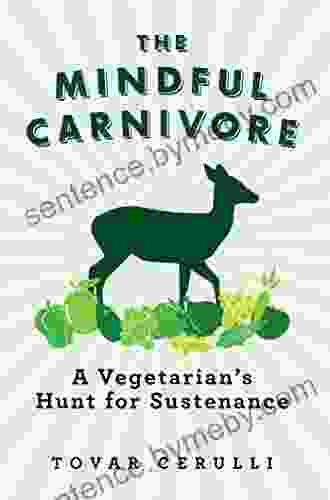Blindsides: Resilience and What Happens After the Worst Day of Your Life

Life can be unpredictable, and sometimes we are faced with challenges that can shake us to our core. These challenges can come in many forms, such as the loss of a loved one, a serious illness, or a traumatic accident. When we experience these events, it can feel like our world has been turned upside down. We may feel lost, alone, and unsure of how to move forward.
In her book, Blindsides: Resilience and What Happens After the Worst Day of Your Life, author Robin Black offers hope and guidance to those who have been through a difficult experience. Black shares her own story of resilience after losing her husband and daughter in a car accident, and she provides practical advice for coping with grief, trauma, and loss.
Resilience is the ability to bounce back from adversity. It is the capacity to withstand stress and trauma and to come out of it stronger than before. Resilient people are able to adapt to change, overcome challenges, and find meaning in their lives even after经历ing difficult events.
4.3 out of 5
| Language | : | English |
| File size | : | 2405 KB |
| Text-to-Speech | : | Enabled |
| Screen Reader | : | Supported |
| Enhanced typesetting | : | Enabled |
| Word Wise | : | Enabled |
| Print length | : | 244 pages |
There is no one-size-fits-all approach to resilience. What works for one person may not work for another. However, there are some general principles that can help us to develop our resilience. These include:
- Having a strong support system. People who have strong relationships with family and friends are more likely to be resilient. These people can provide emotional support, practical help, and encouragement when times are tough.
- Being adaptable. Resilient people are able to adjust to change and find new ways to cope with challenges. They are not afraid to step outside of their comfort zones and try new things.
- Having a positive outlook. People who have a positive outlook on life are more likely to be resilient. They are able to see the good in even difficult situations and find meaning in their experiences.
- Being able to learn from your experiences. Resilient people are able to learn from their mistakes and setbacks. They do not dwell on the past, but instead focus on the future and how they can improve their lives.
Grief is a natural reaction to loss. It is important to allow yourself to grieve and feel your emotions fully. There is no right or wrong way to grieve, and it takes time to heal.
Some tips for coping with grief and loss include:
- Allow yourself to feel your emotions. Do not try to bottle up your emotions or pretend that you are not grieving. It is important to allow yourself to feel the pain of your loss.
- Talk to someone you trust. Talking about your feelings can help you to process your grief and begin to heal. Talk to a friend, family member, therapist, or anyone else who you feel comfortable talking to.
- Join a support group. There are many support groups available for people who have experienced grief and loss. These groups can provide emotional support and a sense of community.
- Take care of yourself. Grief can take a toll on your physical and emotional health. Make sure to eat healthy, get enough sleep, and exercise regularly.
Trauma is a response to a deeply distressing or disturbing event. Trauma can have a lasting impact on our lives, and it can lead to a variety of problems, such as anxiety, depression, and PTSD.
If you have experienced trauma, it is important to seek professional help. A therapist can help you to process your trauma and develop coping mechanisms.
Some tips for overcoming trauma include:
- Seek professional help. A therapist can help you to process your trauma and develop coping mechanisms.
- Talk about your experiences. Talking about your trauma can help you to process it and begin to heal. Talk to a friend, family member, therapist, or anyone else who you feel comfortable talking to.
- Join a support group. There are many support groups available for people who have experienced trauma. These groups can provide emotional support and a sense of community.
- Take care of yourself. Trauma can take a toll on your physical and emotional health. Make sure to eat healthy, get enough sleep, and exercise regularly.
After experiencing a difficult event, it can be hard to find meaning in your life. You may feel lost, alone, and unsure of what the future holds.
However, it is possible to find meaning in your life after a difficult experience. Here are some tips:
- Focus on the present moment. Dwelling on the past or worrying about the future will only make you feel worse. Instead, focus on the present moment and the things that you can control.
- Help others. Helping others can help you to feel connected to your community and find purpose in your life. Volunteer your time, donate to a charity, or simply be there for someone who is going through a tough time.
- Pursue your passions. What are you passionate about? What makes you feel alive? Pursue your passions and interests, and you will find that your life has more meaning.
- Find a higher purpose. What is your purpose in life? What are you meant to do with your life? Finding a higher purpose can help you to find meaning in your life and to overcome difficult experiences.
Life is full of challenges, and we all experience difficult events at some point in our lives. However, we do not have to let these events define us. We can choose to be resilient and to come out of them stronger than before.
If you are struggling with grief, trauma, or loss, know that you are not alone. There are people who care about you and want to help you heal. Seek professional help, join a support group, and take care of yourself. With time and effort, you can overcome your challenges and find meaning in your life again.
4.3 out of 5
| Language | : | English |
| File size | : | 2405 KB |
| Text-to-Speech | : | Enabled |
| Screen Reader | : | Supported |
| Enhanced typesetting | : | Enabled |
| Word Wise | : | Enabled |
| Print length | : | 244 pages |
Do you want to contribute by writing guest posts on this blog?
Please contact us and send us a resume of previous articles that you have written.
 Book
Book Novel
Novel Page
Page Chapter
Chapter Text
Text Story
Story Genre
Genre Reader
Reader Library
Library Paperback
Paperback E-book
E-book Magazine
Magazine Newspaper
Newspaper Paragraph
Paragraph Sentence
Sentence Bookmark
Bookmark Shelf
Shelf Glossary
Glossary Bibliography
Bibliography Foreword
Foreword Preface
Preface Synopsis
Synopsis Annotation
Annotation Footnote
Footnote Manuscript
Manuscript Scroll
Scroll Codex
Codex Tome
Tome Bestseller
Bestseller Classics
Classics Library card
Library card Narrative
Narrative Biography
Biography Autobiography
Autobiography Memoir
Memoir Reference
Reference Encyclopedia
Encyclopedia Keith Black
Keith Black Jason Gregory
Jason Gregory Jan Andrew Henderson
Jan Andrew Henderson Roberta M Gilbert
Roberta M Gilbert Katie Berry
Katie Berry Jay Arthur
Jay Arthur Jay Baruchel
Jay Baruchel James R Chiles
James R Chiles Marni Helene Nispel
Marni Helene Nispel James M Tabor
James M Tabor Kylie Day
Kylie Day Lisa Latimer
Lisa Latimer James Gleick
James Gleick James Mcbride
James Mcbride Jane Eppinga
Jane Eppinga Judith Mckay
Judith Mckay Janice Seto
Janice Seto Lang Lang
Lang Lang James Russell
James Russell Patrick Linsenmeyer
Patrick Linsenmeyer
Light bulbAdvertise smarter! Our strategic ad space ensures maximum exposure. Reserve your spot today!

 Willie BlairLife and Death in Pursuit of Knowledge: An Unforgettable Journey of Discovery...
Willie BlairLife and Death in Pursuit of Knowledge: An Unforgettable Journey of Discovery...
 Shawn ReedReflections On Nurturing Life And Facing Death: A Guide to Finding Meaning in...
Shawn ReedReflections On Nurturing Life And Facing Death: A Guide to Finding Meaning in... Bobby HowardFollow ·3.6k
Bobby HowardFollow ·3.6k Charles DickensFollow ·16.2k
Charles DickensFollow ·16.2k Hassan CoxFollow ·19.7k
Hassan CoxFollow ·19.7k Gabriel Garcia MarquezFollow ·15.7k
Gabriel Garcia MarquezFollow ·15.7k Eric HayesFollow ·17.9k
Eric HayesFollow ·17.9k Maurice ParkerFollow ·13.8k
Maurice ParkerFollow ·13.8k Jaylen MitchellFollow ·2k
Jaylen MitchellFollow ·2k Sidney CoxFollow ·15.3k
Sidney CoxFollow ·15.3k

 Franklin Bell
Franklin BellHow Businesses Can Thrive In The New Global Neighborhoods
The world is becoming...

 Rob Foster
Rob FosterCard Manipulations Volume 1: A Masterclass in Deception...
Unveiling the...

 Enrique Blair
Enrique BlairUnveil the Secrets of Card Manipulation: Dive into "More...
Step into the captivating world...

 Jamal Blair
Jamal BlairComedy Fillers 200 Quips One Liners Jean Hugard
Unlock the Secrets of...

 Chase Simmons
Chase SimmonsUnlock Financial Independence: A Comprehensive Guide to...
In a world where financial security seems...

 Dion Reed
Dion ReedUnveiling Global Market Entry Strategies: A Comprehensive...
Global Market Entry Strategies:...
4.3 out of 5
| Language | : | English |
| File size | : | 2405 KB |
| Text-to-Speech | : | Enabled |
| Screen Reader | : | Supported |
| Enhanced typesetting | : | Enabled |
| Word Wise | : | Enabled |
| Print length | : | 244 pages |








